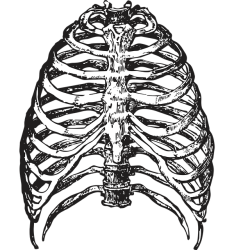In a previous blog, I spoke about oxytocin and how it’s commonly referred to as loving or bonding hormone. Oxytocin also seems to be responsible for trust and empathy between human beings (as well as in other animals). That begs the question; can oxytocin persuade our decisions?
Most likely. In a recent study published at PLoS One by Lin et al, researchers discovered that oxytocin effects men’s choice in donating after viewing public service announcements (PSAs). Oxytocin increased the likelihood of donating to a PSA by 12% and increased donation amount by 56%.
Testing Method
Forty healthy males were infused intranasally with 40 IU of oxytocin or saline, then placed into separate cubbies to watch PSAs to reduce smoking, drinking, speeding and global warming. After, males were asked questions regarding the PSA in order to earn cash, $5 per correct answer for the chance to win up to $100. Obviously, the cash prize was an incentive to participate in the study.
After they earned their money, male participants were shown PSAs of well-known charities and were given the opportunity to donate their newly received earnings.
Results
The group given saline donated to 21% of the PSAs, compared to the group given oxytocin that donated to 33% of them. On average, the oxytocin group donated 56% more than the saline group. Male participants who received oxytocin were not affected by PSAs in the same manner. Instead, participants were only affected by PSAs that personally resonated with them.
Similar effects likely would be seen in women as well. These effects would very depending upon the stage of the menstrual cycle, which was one of the reasons why women were not used in the study. Since women release more oxytocin than men in response to a stimulus, it is possible that women would have a more intense empathetic response to the PSAs.
Implications
Be aware of your oxytocin levels when watching PSAs and commercial advertisements! Just kidding, well kind of. Being aware of how our bodies innately respond to the world around us allows us to make conscious decisions. Knowing that there are strategies to advertising which provokes emotions that make us want to buy a product could be useful while watching commercial-interrupted TV.
From making sure we are donating our money to the best causes to making sure we are picking the right partner (because if not oxytocin can bond you to a jerk), indeed, hormones do matter!















